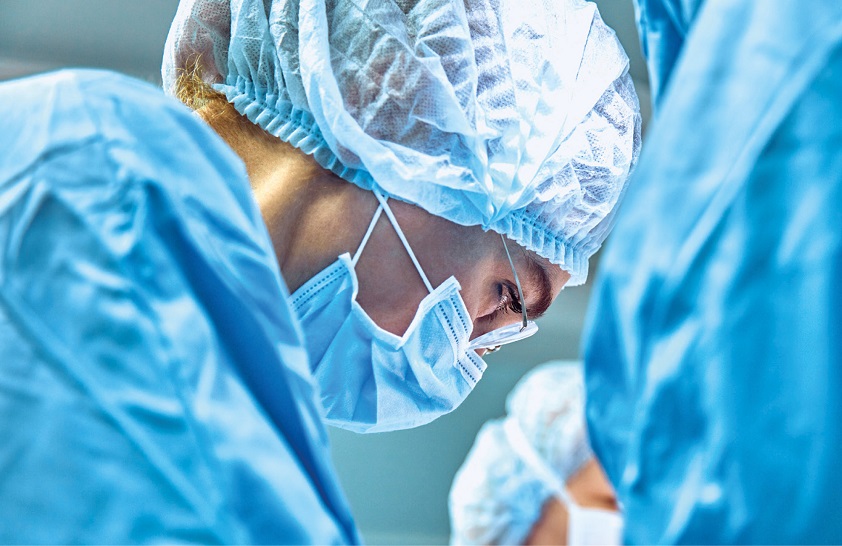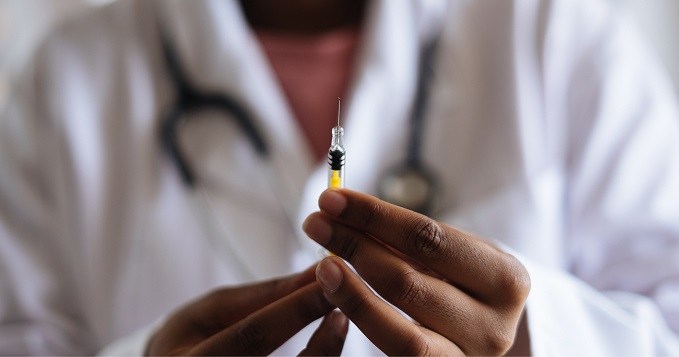Healthcare workers and patients are being put at risk not only from COVID-19 but other deadly diseases as a result of an increase in sharps injuries due to the pandemic. We must act now to stop this, not least as today is World Safety and Health at Work Day.
Sharps injuries are accidents where a needle or other medical sharp instrument penetrates the skin with the potential to transfer blood borne viruses, including HIV or hepatitis B or C, from the patient to healthcare worker and vice versa. Sharps injuries cause increased costs and disruption in the healthcare system, which have all been exacerbated by the pandemic anyway. Sharps injuries also have a major emotional and mental impact on staff who always put patients first and literally have put their lives on the line during COVID-19.
The European Biosafety Network has commissioned a survey to be published in June on the impact COVID-19 has had on sharps injuries in Europe. The preliminary findings of the survey by Ipsos MORI, covering more than 300,000 healthcare workers in 80 large public hospitals across Europe, show that the number of sharps injuries has increased by some 276,000 injuries (23%) over the last year: with 98% of respondents saying that the increase was a result of the increased pressure and stress due to COVID-19.
Other recent published survey results also show that the number of reported sharps injuries has increased as a result of the pandemic. We need to ensure that other existing legislation and regulations which prevent sharps injuries are both understood and complied with.
In 2017, the Medical Devices Regulation (MDR) was published and it included two new clauses which require that medical devices are used safely and should be designed and made to eliminate or prevent sharps injuries. Unfortunately there is a lack of clarity about what these clauses mean in practice which could lead to the use of medical devices that are not safe when the MDR is fully implemented at the end of May 2021.
To remedy this deficit, the European Biosafety Network and the Spanish General Nursing Council are today publishing guidance which will ensure consistency in the implementation and interpretation of the MDR for Member States, Notified Bodies and manufacturers on these two clauses and recommends one objective criteria to be applied: medical devices incorporating safety-engineered protection systems.
One of the authors of the guidance Dr José Luis Cobos said: “European regulations and Directives clearly establish that medical devices with a built-in safety mechanism are the most suitable solution to guarantee the protection of healthcare workers, patients and others against biological risk from sharps injuries.”
Francoise Schlemmer, Director of Team-NB (The European Association for Medical devices of Notified Bodies), said: “In 2018, Team-NB attended a roundtable organised by the MEP Rory Palmer on standards and guidelines for safety mechanisms in the Medical Devices Regulations and Sharps Directive and agreed to be part of the process to raise this with the Commission, Parliament and Council to improve healthcare worker, patient and user safety. Team-NB is committed to reaching a better level of safety in using medical devices and working towards developing a standard.”
In 2009, there were more than 1.2 million sharps injuries each year in Europe. Legislation was passed to prevent sharps injuries in the healthcare sector in the form of the Sharps Directive in 2010, based on a framework agreement between HOSPEEM and EPSU, the European sectoral social partners responsible for the hospital and healthcare sector. This has transformed the legislative framework but what difference in practice has it really made?
The Spanish General Nursing Council undertook a study to look at compliance and implementation of the Directive in Spain after it came into force in 2013. This found that safety devices were the main preventive measure put in place to protect nurses in Spain but that the Sharps Directive was not being implemented in all Spanish healthcare facilities.
In 2019, EPSU and HOSPEEM undertook a follow up report on the impact of the Directive and found that implementation and compliance had been more effective due to their involvement in the process. However, there is still more that needs to be done by European Member States. The social partners are calling on the European Commission to assess the implementation and propose further action at both national and EU level.
Professor Paul de Raeve of the European Federation of Nurses said that the Sharps Directive “certainly helped reduce needlestick (sharps) injuries in some EU Member States, but there is no EU-wide approach to measure accidents; and this is the key problem, both for sharps injuries and COVID-19 infections.” He went on to say: “We must turn this COVID-19 crisis into more frontline EU actions, not just an awareness campaign”; and “protecting the lives of frontline nurses in carrying out their frontline job needs to become an EU legislative priority.”
The European Commission is finalising a draft standardisation request, which includes an updated new standard to provide technical solutions for safety-engineered mechanisms to be applied in design and manufacture to ensure compliance with these two articles in the MDR. This new standard will take some time and has a deadline for adoption by 27 May 2024.
Together, sharps injuries will be eliminated and health workers and patients will be protected from deadly diseases by:
- consistent interpretation and universal implementation of the existing Sharps Directive and Medical Devices Regulation;
- introducing EU wide surveillance and the development of a permanent observatory to deliver detailed and updated information and data on sharps injuries and other accidents;
- comprehensive use of safety devices and a new standard on safety mechanisms in medical devices.
We surely owe it to all healthcare workers, nurses and other professionals who have protected us from COVID-19 over the last year to properly protect them from deadly diseases spread by sharps injuries.


